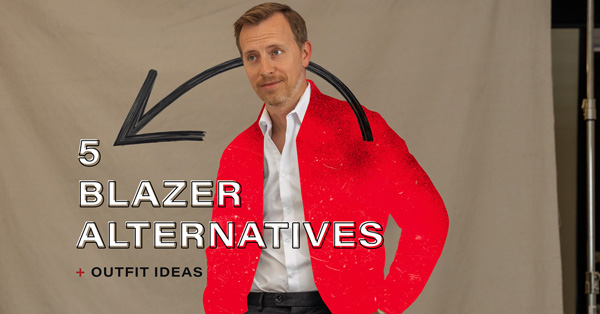With the economy down in the dumps, layoffs have become a sad fact of life. In larger corporations, downsizes are usually broad and indiscriminate. But if you work in a smaller office, cutbacks are likely to be more surgical, heavily relying on the discretion of direct superiors rather than corporate executives who've never set foot in your building, let alone your cubicle.
In situations like these, the squeaky wheel gets the pink slip. Obviously problematic employees get canned first, followed by the under productive and overpaid. After the bulk of the gristle is trimmed, otherwise upstanding employees may find themselves on the chopping block simply because they are a nuisance to the boss.
This may not always be the case, but when it comes to quantifying the performance of individual employees across departments, management will likely find that they are comparing apples to apples – apples which are discernible only by their blemishes. As such, it's in your best interests to stay under the radar to avoid being flagged.
Here are a couple examples of the kind of outstanding employees you don't want to be.
1. The Slacker
Meet The Slacker. Don't confuse him with The Delinquent – the guy who snuck in 30 minutes late every Friday morning, nursing a hangover and a high score on Tetris. That guy's already been fired.
The Slacker actually does his job to a T. But there's the rub: he follows precisely what the “help wanted” ad on Craigslist delineated four years ago – doing no more or no less than his job description demands. If he was hired to clock 40 hours a week, he punches in at exactly 9:00am and slams his laptop shut at 5:00pm. E-mail him at 5:01pm and you'll get his Out of Office Autoreply – he's already on the elevator.
The Slacker's motto is “It's not my job.” When the boss sends out an e-mail asking for a favor, it either gets forwarded to another department or straight to the recycle bin. Phones will ring and ring in his presence, and clients will be left hanging at the front desk. “I'm an analyst, not a receptionist,” he says.
The Slacker will (grudgingly) take on extra tasks that are directly assigned to him, but will feign ignorance when the boss drops hints that coming in this weekend to finish up a project would “be just great.” It wasn't mandatory, right?
Once upon a time, this fellow wouldn't even be called a slacker. He is, after all, fulfilling his duties. But with a market flooded with eligible candidates all vying for the same coveted position, an employer can't afford to hire the guy who does the bare minimum. It's like buying toothpaste – why get the Crest when the Crest with Whitening is the same price?
As interdepartmental cutbacks are made, businesses need employees who can pick up the slack and shoulder the burdens of their recently fallen comrades. One trick ponies are dead weight and will likely be sent out to pasture in the next round of downsizing.
2. The Excusinator
A distant cousin of The Slacker, The Excusinator is always on the defense. He too is a proponent of the “It's not my job,” mantra, but he's an even bigger fan of the “It's not my fault,” line.
Just like The Terminator has a bad ass weapon to assassinate every type of puny human, The Excusinator has an arsenal of cop outs ready to shoot down any criticism. A file gets lost? He didn't have it last. A typo goes out to the client? Someone else should have proof read it. Deadline missed? Printer on fire? Messages forgotten? Maybe the communication from the top wasn't clear enough…
The Excusinator's defensiveness, while designed to deflect disapproval away from him, is actually counterproductive. He'll spend hours compiling evidence that it wasn't his bad, when really, he should be devoting that time to rectifying the faux pas. By the time a mistake happens, the supervisor isn't particularly concerned with who flubbed it – management only cares about two things: solution and prevention.
The Excusinator would be better off handling accusations the way super rich defendants in class actions do: by neither denying or acknowledging wrongdoing and settling the matter out of court. The proper response to an angry e-mail regarding a glaring mistake is “I'll fix it; it won't happen again.”
No one cares that your dog is sick or you have dyslexia or your intern got a concussion or the feng shui is off in your cube. The only important thing is that the problem is being solved.
3. The Teenaged Activist
Even though the Teenaged Activist only joined the firm six months ago, his blue-blooded background and prestigious Ivy League degree gives him the audacity to start stuffing the suggestion box to bursting. Vowing to “turn this place around,” this junior employee is prejudiced against the status quo, believing in nothing but the infallibility of his “fresh perspective,” and the topic of his senior project.
The Teenaged Activist challenges every aspect of the operation, from the tried and true business models that have been in place for decades to the toilet paper roll that has been in the bathroom for two days (“Really, the edge of the roll should face away from the wall”).
Just like the rebels without a cause in high school, The Teenaged Activist's constant shots at “the man” do nothing but make him appear ungrateful and insult senior employees by questioning their experience and expertise. He ends up spending less time doing his own job and more time telling others how they should do theirs. Perhaps he fancies himself one of those “loose cannons,” that always end up saving the day in cop movies, but in reality, all he does is annoy the supervisors who have to pretend to take his suggestions seriously.
While no business evolves without a bit of constructive criticism, throwing in your two cents is best done after you've proven your worth. The Teenaged Activist would be well-advised to do the job he was hired to do. And unless that job is Chief Operating Officer, he should keep his mouth shut.
4. The Inquisitor
During the first week of training, somebody told The Inquisitor: “Don't be afraid to ask questions.” And for some reason, he mistook it for his job description.
The Inquisitor is responsible for dragging out meetings, monopolizing the supervisor's time and flooding inboxes with his incessant queries. He has a million items that need clarification regarding the new cover sheets and he has a never ending supply of things he just “wants to run by you before he proceeds.”
Like an infant, The Inquisitor needs constant support and affirmation (i.e. handholding). But unlike an adoring mommy or daddy, the boss isn't likely to be thrilled about having to watch over The Inquisitor 24/7 to make sure he hasn't dropped his juice box. And he sure as hell isn't going to trust him with an important task.
The point of delegating, after all, is to free up time, not to eat it up with followup questions; an employee that constantly needs direction only adds to a supervisor's workload. The best way to silence the frequently asked questions is to merely ax the waffling quiz show host.
What The Inquisitor needs is a boost in confidence that will, ideally, trickle up to management. Until then, all the time-sensitive, delicate and pivotal projects will be awarded to more independently-able employees.
5. The Butterfinger
On the other hand, there is the The Butterfinger: the employee who is afraid to ask questions and is constantly dropping the ball because of it.
The Butterfinger is the guy that is always missing the memo or referring to the employee handbook from last quarter. He's either out sick, out to lunch or just plain out of it during meetings and is always the first one to forget to implement any changes.
Maybe he's overconfident, or perhaps he's too timid to admit that he's confused. Regardless, The Butterfinger is always screwing things up that a more informed employee wouldn't have. Rather than bug the boss or reach out to a fellow employee, he makes assumptions and someone ends up having to undo all of his work. Sooner or later, the boss is going to realize that it's quicker to just pass the project directly along to the clean up crew and cut out the middleman.
If Ol' Butterfinger is going to last, he needs to get with the program. If that means taking better notes at meetings or finding a colleague that can keep him updated, so be it. He doesn't need to become The Inquisitor, but he needs to learn how to rely on the network of resources inherent in office culture.
6. The Phantom of the Office
You may have noticed The Phantom of the Office, but chances are you haven't. Remember that time at the Christmas Party when you mistook him for the catering staff? Boy that sure was embarrassing when you found out that he'd been with the firm for seven years. Even after having that awkward conversation with him, perhaps multiple times, you still can't remember what he does around the office, and frankly, no one else can either.
There are two possible explanations for the shadowy, perhaps masked man: he's either playing a mysterious, integral behind the scenes role or, more likely, he's not doing much of anything. He never has anything productive to say at meetings (other than “Present!”) and he's never doing special favors for anyone, because no one is really sure what he can do or even where his desk is.
The Phantom of the Office is the polar opposite of the whiz kid right-hand man who the boss falls apart without. Maybe he calls in sick or takes a leave of absence and nobody even noticed he was gone. It doesn't take much of a leap of logic to realize that people still wouldn't notice if his leave of absence was made permanent.
Piping up would be the Phantom's saving grace. If his job is menial and unappreciated, his best bet is to step in where The Slacker or The Excusinator drop out, proving himself a benevolent ghost rather than an ectoplasmic bump in the night.
When times are tough, there's no surefire way to keep yourself out of the unemployment office. But when judicious cuts need to be made to the workforce, it's best not to distinguish yourself as excess baggage. Instead, do the job you were hired to do and do it well. Be willing to take on extra duties in order to help out the ailing business. Facilitate the necessary streamlining of staff by expanding your productivity and focusing on being indispensable without becoming insufferable.




















